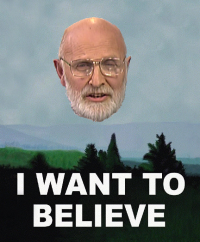 Since the 5.1 magnitude aftershock on the evening of March 20, various Ringnuts — that is, people who take Ken Ring’s moonie earthquake “predictions” seriously — have been saying things along the lines of “SEE ITS TRUE HE TOLD YOU AND YOU DIDN’T LISTEN!” Their ranks include people who really should know better, who’re revealing that when faced with a bit of smoke and a couple of mirrors they’re as credulous as the next rube.
Since the 5.1 magnitude aftershock on the evening of March 20, various Ringnuts — that is, people who take Ken Ring’s moonie earthquake “predictions” seriously — have been saying things along the lines of “SEE ITS TRUE HE TOLD YOU AND YOU DIDN’T LISTEN!” Their ranks include people who really should know better, who’re revealing that when faced with a bit of smoke and a couple of mirrors they’re as credulous as the next rube.
Such as Brian Edwards, who asks “So – was Ken Ring right or wrong?”, and after arraying a series of banal and rigourless equivocations, attempts to turn scepticism on its head by appealing to the old charlatan’s fallback: cosmic uncertainty, man. We don’t really know anything, so everything’s as good as everything else, man.
The trouble is that Brian’s banal and rigourless equivocations — I’ll not repeat them here — are of a piece with those issued by Ken Ring, and that’s the whole point. Brian tries to have a lazy bob each way on the question of whether Ring is right or wrong. Ring has a bob in each of a dozen different ways, from earthquakes of unspecified magnitude across a very wide area, or possibly a weather event of unspecified nature, occurring in a very broad span of time; or possibly nothing at all. The predictive uselessness these banal and rigourless equivocations have been very thoroughly thrashed out in the past month — notably by David Winter, Alison Campbell [edit to add: and Grant Jacobs]. The punchline is that it would have been a shock if his “prediction”, such as it was, had not “come true”.
What separates the Ringnuts (both the reluctant, who claim the mantle of scepticism, and the True Believers) from the rest of us is the realisation that, given the nature of Ring’s “predictions” it is impossible to answer Brian’s question, “Was Ken Ring right or wrong?”. Ken Ring doesn’t give us a testable prediction, so we can’t even get to the point of assessing its rightness or wrongness. Ken Ring is neither right nor wrong. He doesn’t even get to the point of being wrong, since he hasn’t said anything meaningful.
Given all of this, being wrong would be a considerable improvement for Ken Ring.
L
